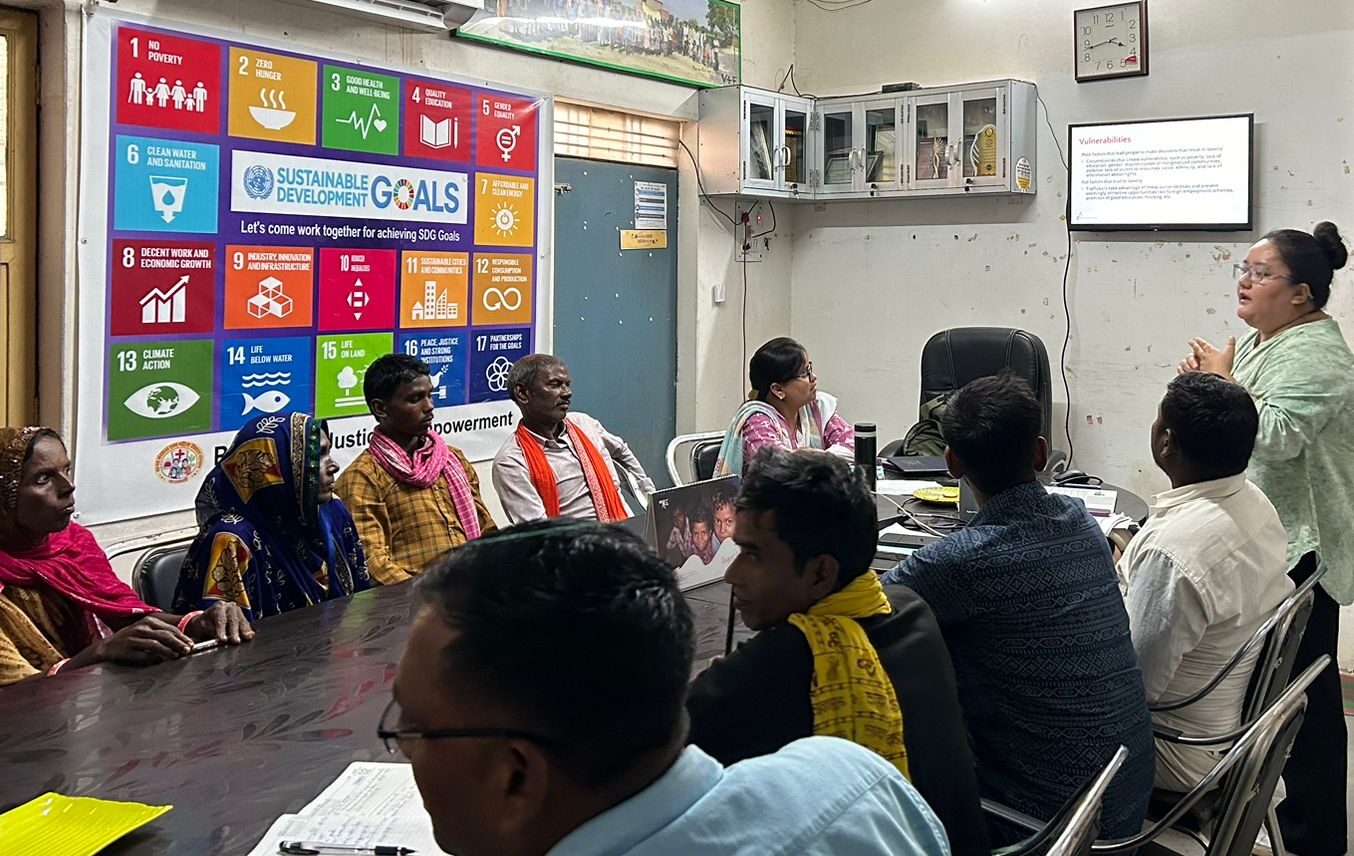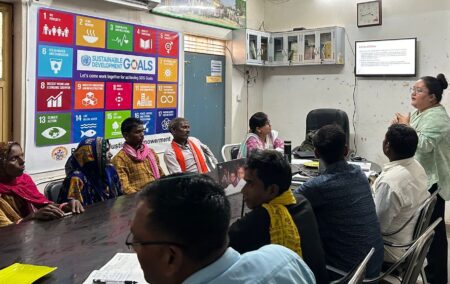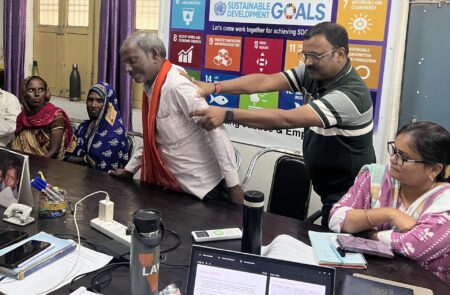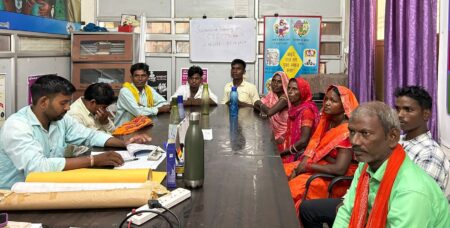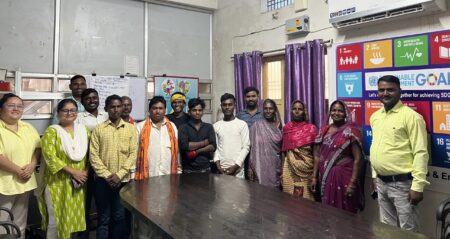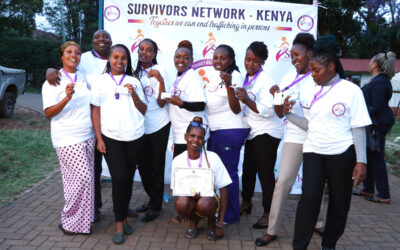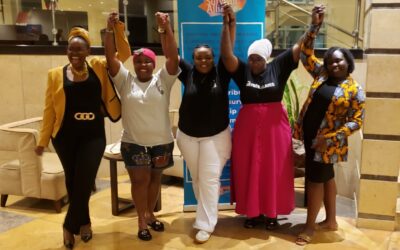In recent years, the movement to eradicate modern slavery and human trafficking has undergone a significant shift. Instead of focusing solely on survivor stories as sources of motivation, there is now a strong emphasis on providing survivors with leadership opportunities. This approach allows those who have experienced exploitation firsthand to take on active roles in the fight against slavery. Survivors are now stepping into leadership positions, forming networks, and establishing organizations to lead the movement against trafficking and modern slavery. Both international and national organizations are playing a vital role in supporting these survivor networks through capacity-building and awareness-generation activities.
Free the Slaves is committed to this effort, and recently organized a three-day training session for members of Azad Shakti Abhiyan, a survivor collective in India. This training focused on ‘Module 1 – Educating and Mobilizing Vulnerable Communities,’ part of the Community Liberation Initiative (CLI). The CLI is designed to equip partners with the essential knowledge and skills needed to strategically implement community liberation programs aimed at eradicating various forms of modern slavery and trafficking. The initiative is structured around four key pillars: Educating and Mobilizing Vulnerable Communities, Increasing Access to Social and Economic Services, Enhancing the Rule of Law, and Survivor Liberation, Care, and Reintegration.
The training was attended by 11 survivors who are members of the Azad Shakti Abhiyan, along with 2 staff members from Manav Sansadhan Evam Mahila Vikas Sansthan. Of the 13 participants, 10 were male and 3 were female survivors. The objective of the training was to equip the participants with a thorough understanding of various topics, including the definition of modern slavery and trafficking at both national and international levels, the relevant laws, how to identify vulnerability factors, indicators of trafficking and slavery, human rights, and the steps involved in community mobilization. The sessions provided a global perspective on slavery and trafficking, helping the participants grasp the diverse forms of modern slavery worldwide. Additionally, the training focused on educating the participants about basic human rights, labor rights, and women’s rights, all of which are essential for effective community engagement. By the end of the training, participants had developed a clear understanding of how to engage with and mobilize vulnerable communities in an organized manner.
Throughout the training, it became clear that many participants, despite being victims of modern slavery and trafficking, were unaware of their basic human rights. As Ms. Durga Devi, a participant, shared,
“When I was working as a bonded laborer I used to work for 12-13 hours for a bare minimum wage and wasn’t aware that my employer cannot make me work more than 8 hours and if he forces me to do so, he can face legal consequences. Now that I am learning all these things, I want to help others and save them from these conditions.”
For some participants, like those who recently escaped exploitation with assistance from Azad Shakti Abhiyan, this training was their first exposure to the global scale of modern slavery, beyond their personal experiences. They were surprised to learn that similar forms of exploitation exist even in foreign countries. Mr. Sunil, another participant, noted,
“As members of Azad Shakti Abhiyan we were working in our individual capacity in our communities but with the help of the learnings from this training we will be able to work collectively and make our efforts more successful in the communities.”
He added,
“I cannot express the feeling of respect I get while interacting with my friends after attending these trainings. Even if I am illiterate, I am helping more than 18 children get education by advocating for their rights with the school administration in the communities, I want to make sure that all the children get equal opportunities for education. The learning I am getting from this training will help me strengthen my efforts in the communities.”
Another participant, Mr. Lalphool, emphasized the unique perspective that survivors bring to the fight against slavery:
“People who have experienced modern slavery and trafficking can only think of solutions to eradicate slavery and trafficking. There should be more opportunities like this where we get to learn more and prepare ourselves to help people who are still living in bonded conditions.”
Free the Slaves’ South Asia team plans to conduct a post-training evaluation in November 2024, followed by a refresher training session to reinforce the participants’ skills and knowledge. This ongoing support underscores Free the Slaves’ commitment to empowering survivors, ensuring they are not just part of the story but leaders in the movement to end modern slavery.

